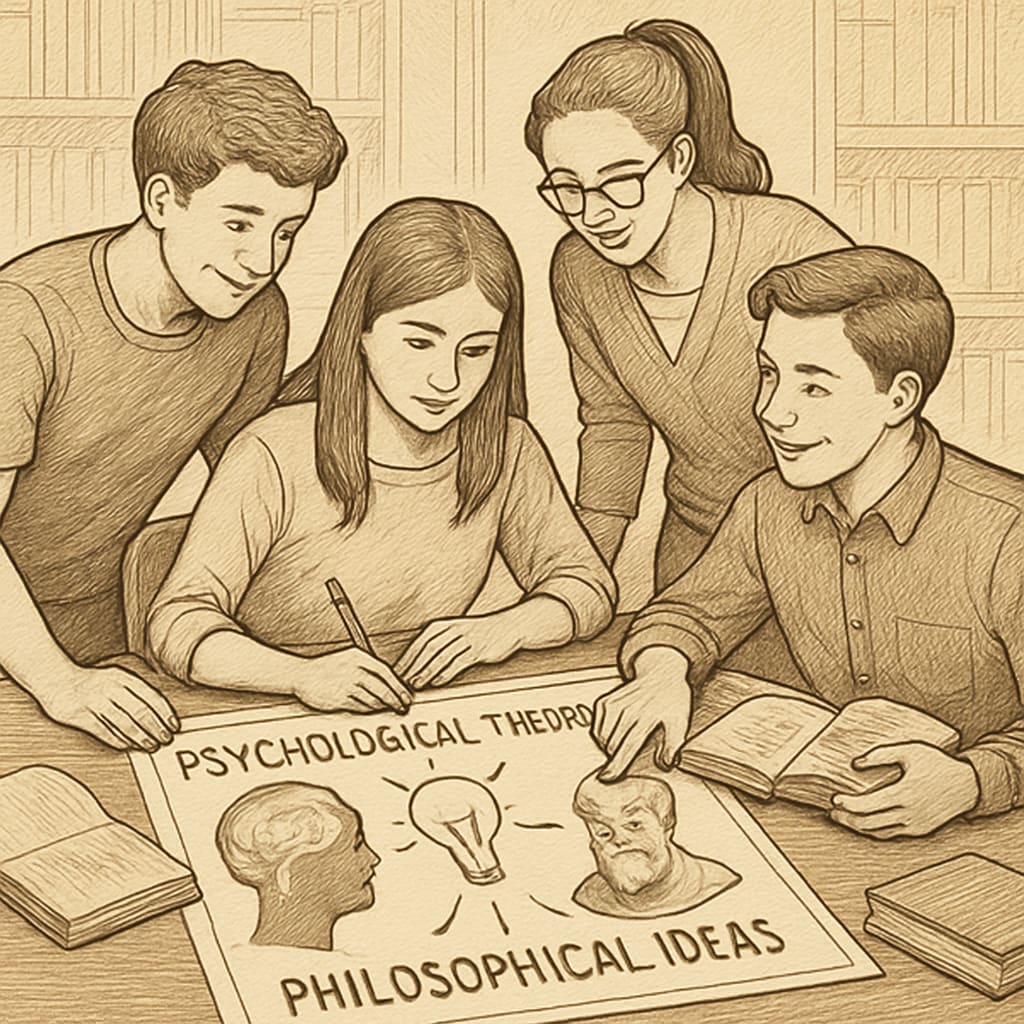Amateur learning in psychology and philosophy offers a unique opportunity to enrich K12 education by fostering critical thinking, emotional intelligence, and self-awareness. By integrating these disciplines into the classroom or extracurricular activities, educators and parents can help young minds better understand themselves and the world around them. This article provides practical strategies and resource recommendations to inspire students and support their intellectual and emotional growth.
Why Psychology and Philosophy Matter in K12 Education
Psychology explores human behavior, emotions, and cognition, while philosophy encourages inquiry into fundamental questions about existence, morality, and knowledge. Together, these fields equip students with tools to navigate life’s challenges. By introducing these subjects early, educators can nurture curiosity, resilience, and empathy—essential traits for personal and academic success.
- Critical Thinking: Philosophy sharpens analytical skills and logical reasoning, enabling students to evaluate arguments and make informed decisions.
- Emotional Intelligence: Psychology teaches students to recognize and manage emotions, fostering better relationships and coping mechanisms.
- Self-Reflection: Both subjects encourage introspection, helping students develop a deeper understanding of their values and motivations.

Practical Ways to Introduce Psychology and Philosophy
Incorporating psychology and philosophy into K12 education doesn’t require a complete curriculum overhaul. Instead, educators and parents can weave these subjects into existing frameworks or extracurricular activities. Here are some actionable ideas:
- Discussion-Based Learning: Host weekly philosophy discussions on topics like ethics, justice, or happiness, encouraging students to share perspectives.
- Psychological Experiments: Conduct simple, classroom-friendly experiments to demonstrate concepts like memory, perception, or decision-making.
- Book Recommendations: Introduce age-appropriate texts such as “Sophie’s World” by Jostein Gaarder for philosophy or “Emotional Intelligence” by Daniel Goleman for psychology.
- Mindfulness Practices: Integrate mindfulness exercises to help students understand and regulate their emotions effectively.
- Creative Projects: Encourage students to create essays, art, or presentations exploring philosophical or psychological themes.

Recommended Resources for Amateur Learning
Parents and educators seeking to introduce psychology and philosophy to K12 students can benefit from a wealth of accessible resources. Below are some suggestions:
- Philosophy on Britannica: A comprehensive resource for foundational philosophical concepts.
- Simply Psychology: A user-friendly site offering clear explanations of psychological theories.
- Books: “The Philosophy Book” (DK Publishing) and “The Psychology Book” (DK Publishing) are excellent visual guides for beginners.
- Podcasts: “Philosophize This!” and “The Psychology Podcast” provide engaging content tailored for curious learners.
- Apps: Tools like “Headspace” for mindfulness and “Socratic” for philosophical inquiry can support digital learning.
By leveraging these resources, amateur learners can dive into psychology and philosophy at their own pace, building a foundation for lifelong exploration.
Conclusion: Cultivating Young Minds
Integrating psychology and philosophy into K12 education enriches students’ understanding of themselves and the world, fostering skills that extend beyond the classroom. Whether through classroom discussions, creative projects, or self-guided learning, these subjects offer invaluable benefits. As a result, students can develop critical thinking, emotional intelligence, and self-awareness—essential qualities for thriving in modern society.
Educators and parents alike have the power to ignite curiosity and inspire young minds. By embracing amateur learning in psychology and philosophy, we can help children embark on a journey of intellectual and emotional discovery that lasts a lifetime.


